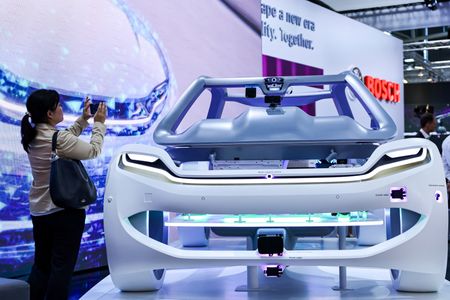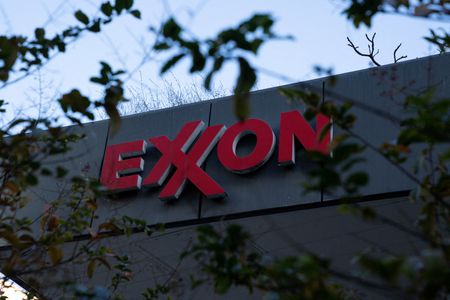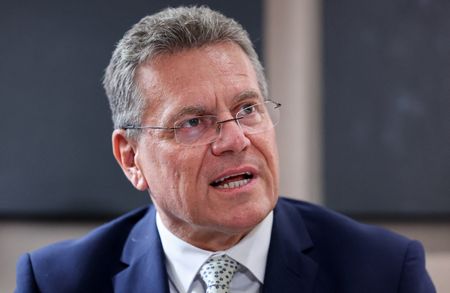By Ilona Wissenbach and Rachel More
BERLIN (Reuters) -German automotive suppliers are still struggling with a global chip supply shortage triggered by a trade dispute over manufacturer Nexperia, with thousands of workers facing production disruptions at Bosch, the company said on Tuesday.
China and the Netherlands have been locked in a battle for control of Nexperia, although there are hopes of some easing in the stand-off with the Dutch government sending a senior delegation to Beijing this week to try to find a compromise.
Bosch said it was struggling with disruption at three of its production sites – Ansbach and Salzgitter in Germany and Braga in Portugal.
“We are continuing to prioritise everything we can to serve our customers and avoid production restrictions or keep them to a minimum,” it said.
FURLOUGH MEASURES IN USE ‘AS NEEDED’
Dutch-headquartered Nexperia’s chips are technologically simple but ubiquitous in car electronic systems and other consumer products.
The Dutch government seized control of the Chinese-owned company in September over fears of technology transfers, prompting Beijing to curb exports of the company’s finished products from China.
This left major suppliers like Bosch, Aumovio and ZF Friedrichshafen scrambling for alternative suppliers, while China’s commerce ministry has granted export ban exemptions for some.
As the supply crunch slows production, Bosch has been sending workers home when necessary.
In Germany, the company is using state-backed furlough measures “as needed” for between 300 and 400 workers at Salzgitter, where it employs 1,300, and for around 650 of the 2,500 workers at Ansbach, the spokesperson said.
At Braga, about 2,500 of a total 3,300 employees are affected by temporary working time adjustments or furloughs, the spokesperson added.
INDUSTRY BODY WARNS OF RISKS TO PRODUCTION IN COMING WEEKS
ZF Friedrichshafen said its chip supplies were secure until the middle of next week.
Furlough measures are not needed at ZF before then, “but cannot be ruled out” afterwards, a spokesperson added.
Germany’s VDA automotive association said the situation remained tense.
“It is too early to give the all-clear – we cannot rule out further impacts on supply chains in the coming weeks,” VDA Managing Director Marcus Bollig told Reuters.
The shortages are hitting supply chains globally, with Japan’s Nissan to cut production by another 1,400 vehicles at its Kyushu plant next week, a person familiar with the matter said.
Honda signalled some easing, meanwhile, saying it would resume regular output at its North American plants.
(Reporting by Ilona Wissenbach and Rachel More. Editing by Jan Harvey and Mark Potter)










